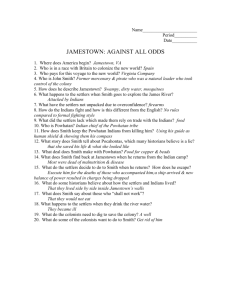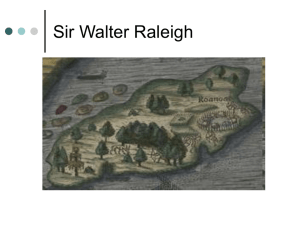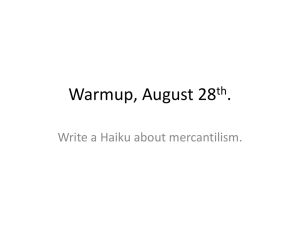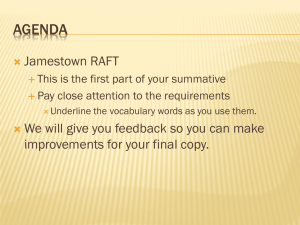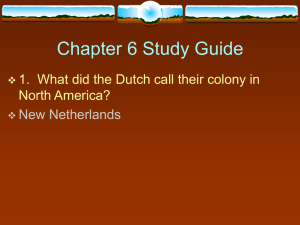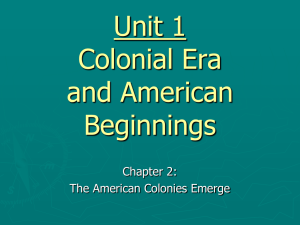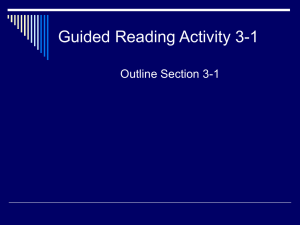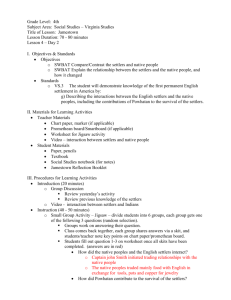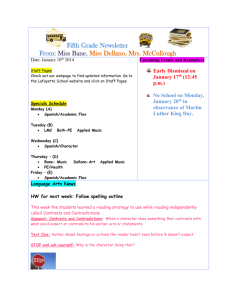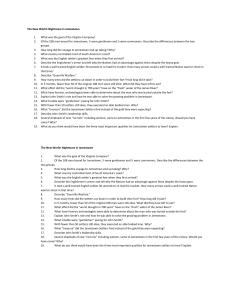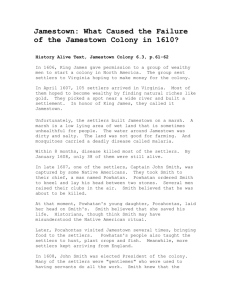Reading 7 Smith
advertisement
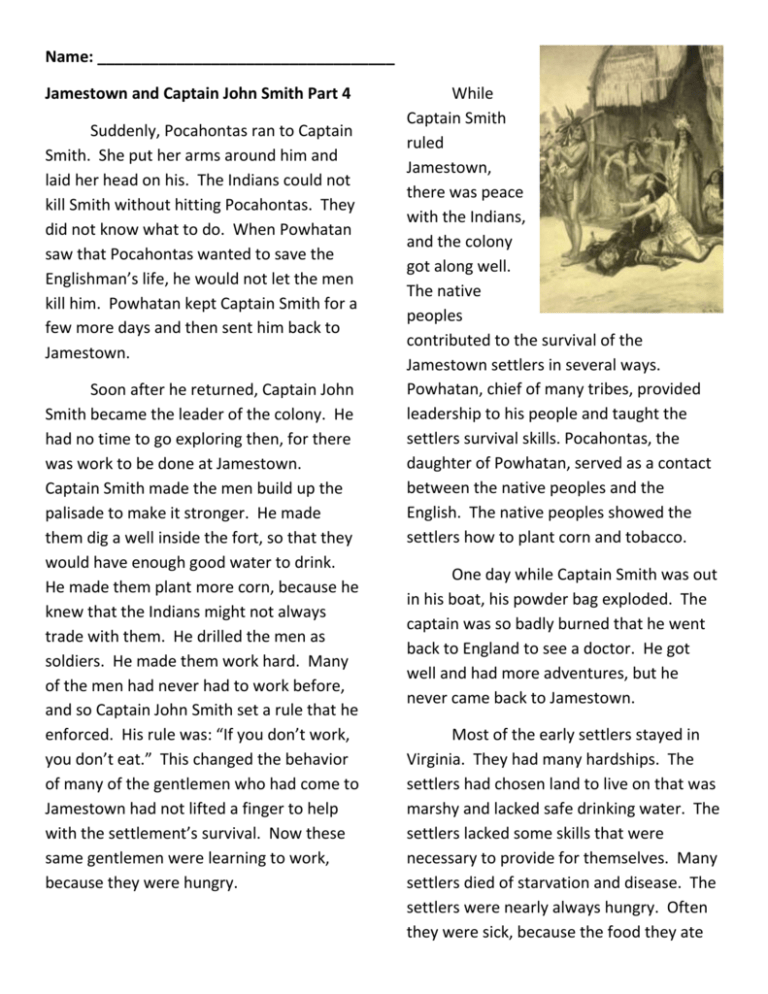
Name: __________________________________ Jamestown and Captain John Smith Part 4 Suddenly, Pocahontas ran to Captain Smith. She put her arms around him and laid her head on his. The Indians could not kill Smith without hitting Pocahontas. They did not know what to do. When Powhatan saw that Pocahontas wanted to save the Englishman’s life, he would not let the men kill him. Powhatan kept Captain Smith for a few more days and then sent him back to Jamestown. Soon after he returned, Captain John Smith became the leader of the colony. He had no time to go exploring then, for there was work to be done at Jamestown. Captain Smith made the men build up the palisade to make it stronger. He made them dig a well inside the fort, so that they would have enough good water to drink. He made them plant more corn, because he knew that the Indians might not always trade with them. He drilled the men as soldiers. He made them work hard. Many of the men had never had to work before, and so Captain John Smith set a rule that he enforced. His rule was: “If you don’t work, you don’t eat.” This changed the behavior of many of the gentlemen who had come to Jamestown had not lifted a finger to help with the settlement’s survival. Now these same gentlemen were learning to work, because they were hungry. While Captain Smith ruled Jamestown, there was peace with the Indians, and the colony got along well. The native peoples contributed to the survival of the Jamestown settlers in several ways. Powhatan, chief of many tribes, provided leadership to his people and taught the settlers survival skills. Pocahontas, the daughter of Powhatan, served as a contact between the native peoples and the English. The native peoples showed the settlers how to plant corn and tobacco. One day while Captain Smith was out in his boat, his powder bag exploded. The captain was so badly burned that he went back to England to see a doctor. He got well and had more adventures, but he never came back to Jamestown. Most of the early settlers stayed in Virginia. They had many hardships. The settlers had chosen land to live on that was marshy and lacked safe drinking water. The settlers lacked some skills that were necessary to provide for themselves. Many settlers died of starvation and disease. The settlers were nearly always hungry. Often they were sick, because the food they ate was bad and the water they drank was not pure. Many of the settlers had a kind of fever that may have been malaria. Some mosquitoes carry the germ of malaria, and there were many mosquitoes around Jamestown. In those days, people did not know about germs. The settlers did not know what made them sick. Many of them died. New settlers came and took the places of those who died. They, too, had many hardships. By the time Captain John Smith left, in the fall of 1609, other ships had come from England. Then there were about 500 settlers in the colony. Some of the new settlers were women and children. When winter came, they had almost no food, and the Indians would not trade with them, because the Indians had experienced a bad drought themselves. They barely had enough corn to last their tribes through the winter. During the long winter, many of the settlers died from hunger. So many of them starved to death that it has been called: “The Starving Time.” When spring came, only about sixty of the 500 settlers were still living. Those sixty people were weak from hunger and sickness. It seemed to them a long time since an English ship had come to Virginia. Had the Virginia Company forgotten them? Would they have to stay at Jamestown and starve to death as their friends had done? Directions: Circle the correct answer. 1. What did Pocahontas do to save John Smith’s life? A. Put her head on his head B. Jumped out of the forest and took the arrow for him C. Wrote a letter to her father after he was captured D. Yelled and screamed to embarrass Powhatan 2. Who became the leader of the Jamestown colony? A. Pocahontas B. Powhatan C. John Smith D. Christopher Newport 3. What was John Smith’s new rule? A. If you kill an Indian, you get to eat B. If you don’t work, you don’t eat C. If you learn a trade, you will go back to England D. If you work, you will get rich 4. What was NOT something the settlers died from? A. malaria B. starvation C. sickness from bad water and food D. working too hard 5. In what year did a new supply ship with more settlers come? A. 1607 B. 1609 C. 1620 D. 1709
